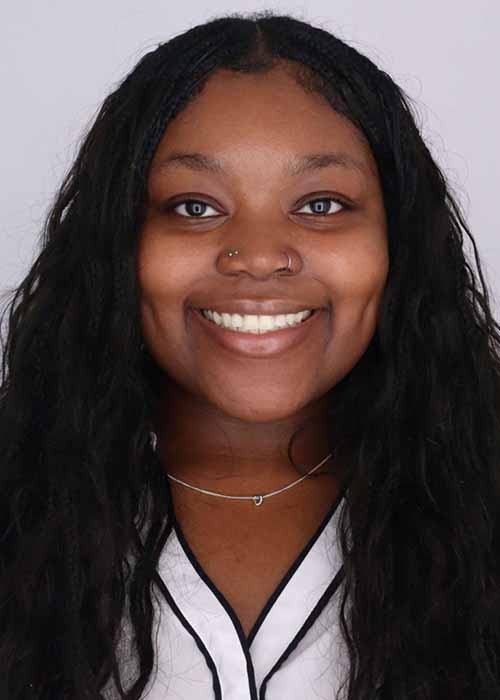To offer the best possible medical treatments, many healthcare providers and administrators in recent years have started to rely on patient personas.
By grouping together patients with similar characteristics - such as their medical diagnoses, needs, preferences and behaviors - doctors plan better overall care at hospitals and other medical facilities. Then, after zeroing in on one patient's characteristics and concerns, they map out an individual healthcare journey.
Personas have been credited with revolutionizing the delivery of patient-centered care, which allows people more input into their own health management. Industrial and systems engineers who focus on improving healthcare and patient outcomes see them as a powerful tool, and two graduate students at Binghamton University have suggestions for making them more effective.

In research recently published in the Journal of Healthcare Risk Management, Jhanille Hurde and Amaya McCollough '25 from the Thomas J. Watson College of Engineering and Applied Science's School of Systems Science and Industrial Engineering analyze the use of personas and how it can help patients as well as the healthcare system as a whole.
"In healthcare, or in any industry, there are a lot of personas. With job roles, you have the manager, you have the supervisor, you have the crew member - each person has a persona," Hurde said. "As a patient, you have your own persona. Even if you have breast cancer and somebody else has breast cancer, you are two different personas, because you need different treatments and different interventions."
This semester, Hurde is finishing her master's degree while working at the Memorial Sloan Kettering Cancer Center in New York City through the Watson Institute for Systems Excellence (WISE), which embeds students in industry to conduct real-world research.

Hurde's advisor, SSIE Assistant Professor Sreenath Chalil Madathil, said researching personas and related healthcare tracking can improve patient outcomes and system performance.
"Patient journey mapping serves as a critical foundation for healthcare systems engineering, enabling evidence-based optimization of care delivery by capturing real patient needs and experiences," Madathil said. "Using dynamic patient personas, engineers can identify problems in processes, enhance workflows and effectively utilize AI-driven predictive analytics."
During her research on personas, Hurde discovered that few healthcare providers have a standard way to collect and format the information, which makes it difficult to collate and compare data. That lack of standardization can lead to biases when collecting the material, and it hampers efforts to apply artificial intelligence to predict better outcomes.
"We need to have more dynamic patient personas in this new age that we're in, using technology to do predictive analytics, or using machine learning and AI to help us along that journey," she said. "We use those tools every day, and we use them a lot in healthcare, so why not use them to serve our patients?"
Through her work at MSK, Hurde knows the importance of understanding not just patients' clinical needs, but also their mental and social well-being.
"If you're creating new technologies, like a heart rate monitor, who are you tailoring those devices for?" she said. "Is it meant for a cardiac patient who needs reliable at-home arrhythmia detection, or someone just tracking fitness? Different personas, different needs."
McCollough earned her bachelor's degree in ISE from Binghamton earlier this year and works as an associate engineer for the energy company Avangrid. She also is earning her master's degree through the SSIE School's Executive Program in Health Systems taught in Manhattan.
Her role in the research involved working with Hurde to find supporting evidence and to double-check conclusions - but that proved to be more challenging than they originally thought.
"A lack of published research about personas made doing the review a little harder, because there wasn't as much information regarding them," she said. "Few people are publishing anything about their application. That makes it hard to connect what I'm doing right now with topics like enterprise systems, which deals with customer relations, resource planning and supply-chain management."
Hurde and McCollough agree that the focus of their research is on patients, but improving collection and implementation of personas could solve "pain points" in the healthcare system overall, such as delays in care, hospital admissions or discharges. Redesigning workflows for optimum efficiency requires as much data as possible.
"There's a disconnect with almost all the research where people did the work, and the work is good - but where is it being applied in the real world right now?" Hurde said. "There's no documentation or research being put out to see how it's being used. What are the outcomes? What are the benefits? That was a real shock to me."
SUNY Distinguished Professor and Director of the SSIE School Mohammad T. Khasawneh appreciates the fresh ideas that student researchers bring to the healthcare discussion.
"Improving healthcare systems has been a long-time goal for WISE," he said. "We are proud of what Jhanille and Amaya have accomplished with this research, and we look forward to seeing where their future careers take them."








